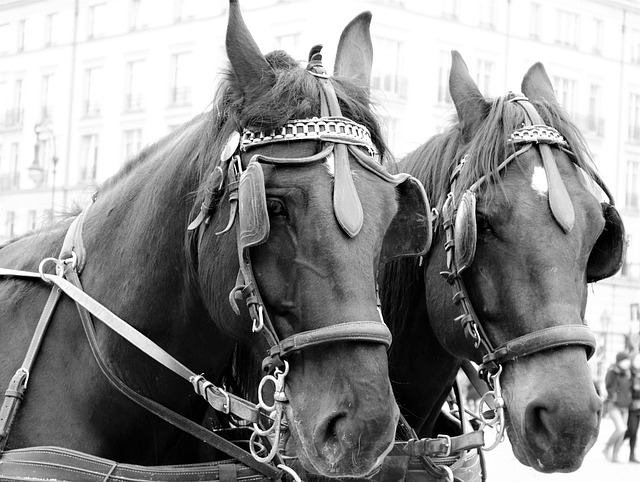The telephone, Trump and riding two horses simultaneously
Posted By Tom Switzer on February 9, 2017 @ 14:30

According to an old joke, Americans need good peripheral vision to be able to find Australia on a map. When we attract attention, as often as not it’s for some natural calamity (floods, bushfires, shark attacks), our sporting endeavours or for our charms as a travel destination. Those days are over.
Last week’s telephone clash between Donald Trump and Malcolm Turnbull didn’t just make global headlines. It also raised Australia’s profile in Washington to a point not seen since 1942–45 when our combat troops served under General Douglas MacArthur and scores of US air and naval bases and army camps were stationed Down Under.
The consensus is that the US president emerged from the call worse for wear. Certainly, Trump’s tantrum—not to mention the media leak and late-night tweet—was no way to treat a close ally.
The episode has raised questions about Australia’s relationship with the US. Some, such as the Greens, have used the drama to revive calls to jettison the alliance. Others say that in the Trump era Canberra should exercise greater strategic self-reliance.
In the US, Trump found a receptive audience during last year’s election campaign whenever he questioned Washington’s penchant for subsidising allies’ defence. But Australia’s obviously no Luxembourg. We’re the only ally to have joined America in the foxhole in every major war in the past century: both world wars, Korea, Vietnam, the Gulf War, Afghanistan, and Iraq in 2003 and since 2014.
Indeed, notwithstanding disagreements over the Suez crisis in 1956, Indonesia’s annexation of West Papua in 1962 and the US bombing in Hanoi in Christmas 1972, Canberra has been one of America’s most dependable and loyal allies in the world.
Thus did Harold Holt in 1966 pledge to go ‘All The Way With LBJ’, while John Gorton promised a possibly bemused Richard Nixon that Australia would ‘Go a-Waltzing Matilda With You.’ In the aftermath of September 11, John Howard committed Australia to being a ‘100 per cent’ ally, providing strong support to the widely unpopular US-led invasion of Iraq.
To be fair, Australian governments have usually acted out of conviction as well as expediency. From our perspective, the advantages of the alliance are obvious: favourable access to intelligence, procuring military technology and platforms, and the all-important security insurance policy.
It’s against this background that Trump’s conduct should be recognised. If his administration is serious about checking China’s growing power, it’ll need reliable allies to conduct freedom-of-navigation patrols through the South China Sea. But that will be become more difficult whoever is prime minister.
For more than a decade, Australia has had a great debate about what China means for the alliance. For Washington and Canberra, China’s dramatic rise means different things. For the US, its main significance is the emergence of a potent strategic rival; for us, it’s the opportunity for a rewarding trade and commercial partnership. China is Australia’s largest trading partner, and are enthusiastically welcoming its further engagement in the region. In 2014 Canberra rebuffed Washington’s request to reject membership in the Beijing-led Asian Infrastructure and Investment Bank.
Meanwhile, this is a hard time to love America. According to a Lowy Institute poll [1] last year, 45% of Australians agreed that ‘Australia should distance itself from the United States if it elects a president like Donald Trump.’ In the Trump era, the phrase “special relationship” has never seemed more absurd.
None of this, however, means that Australia is faced with a hard, stark choice between Washington and Beijing—not, at least, unless one or the other of them insists that such a choice be made. But it does mean that we must learn to play what Owen Harries and I have argued [2] is a more demanding diplomatic game than ever before, one that will on occasion involve the difficult feat of riding two horses simultaneously.
The upshot is that in the Trump era Australia will become more qualified and cautious in our support for what Menzies called ‘our great and powerful friend.’ There’s nothing wrong with that: we’re a proud, independent nation with a distinct sense of our own values and traditions. Australia and the US get along best when both recognise that their policies toward each other rest upon respective perceptions of national interest.
Article printed from The Strategist: https://www.aspistrategist.org.au
URL to article: https://www.aspistrategist.org.au/telephone-trump-riding-two-horses-simultaneously/
URLs in this post:
[1] Lowy Institute poll: https://www.lowyinstitute.org/publications/2016-lowy-institute-polling-donald-trump-polarises-australians
[2] have argued: http://www.the-american-interest.com/2006/06/01/loyal-to-a-fault/
Click here to print.